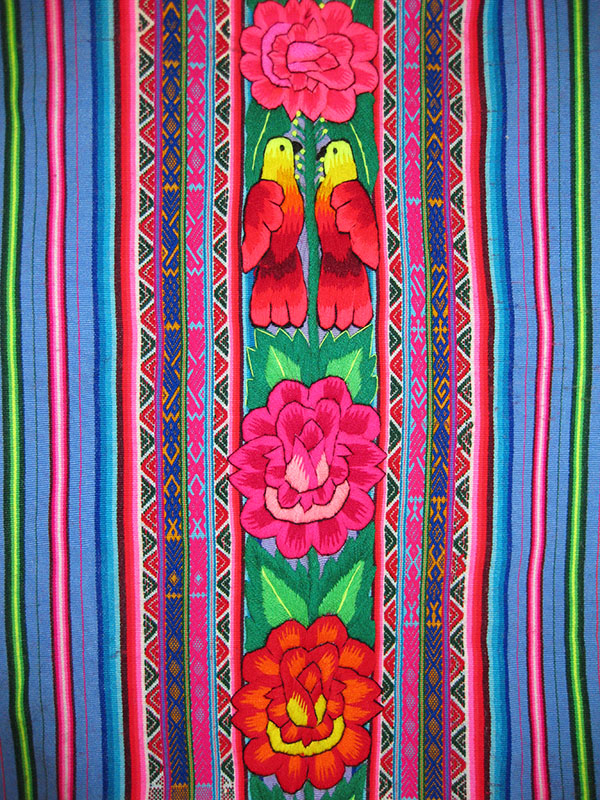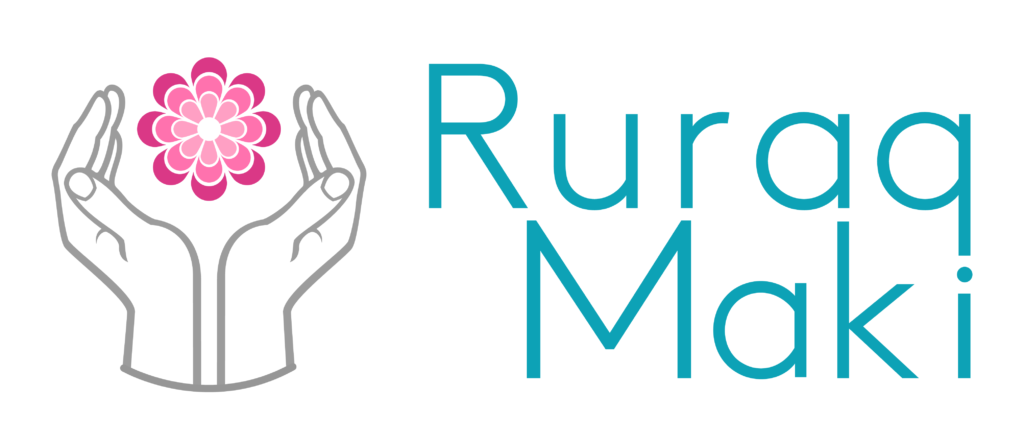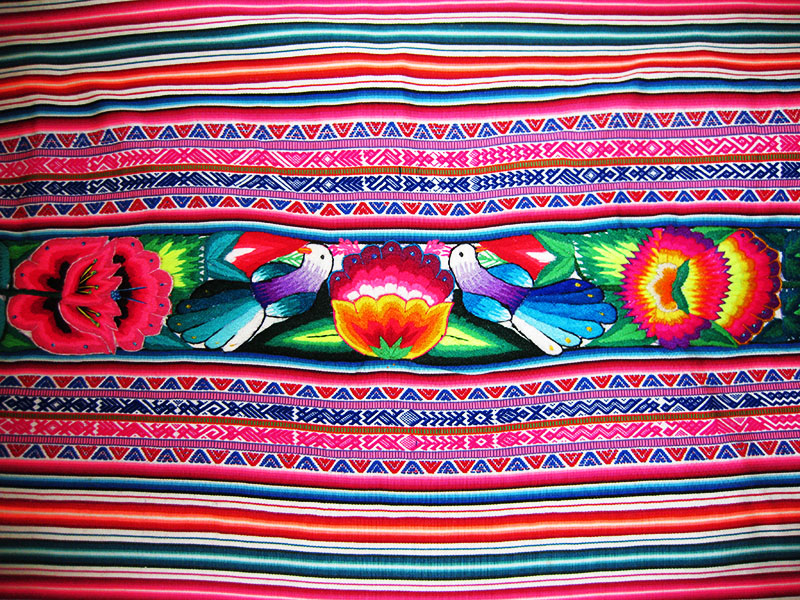My first day in the prison was a moderate success. The least exciting part was trying to present my papers to the prison director who was not there today. Instead, I left my Education Plan with his secretary in exchange for a stamp that confirms the papers were received. In theory I should have my authorization papers tomorrow, but it is likely I won’t receive them by the end of the week.
Fortunately, not having paperwork had no bearing on me visiting the women! Ruraq Maki has been accepted to the International Folk Art Market in Santa Fe, a 3-day market dedicated to preserving and celebrating traditional crafts from around the world. We will be selling embroidered products from the prison, including tote bags, cosmetic cases, and entire mantas. Over 20,000 visitors attend the market and the event will be a wonderful opportunity to display (and sell) the work of the women.
One of the best parts of our acceptance is that it means a big order for the women in the prison. Not only will we be working with the women in our programs, we will also be extending our order outside our programs as we will be purchasing manta from many women in the prison. Due to the size of the order, I spent most of the day talking about order logistics.

A light blue manta with 4 rows of curros and Ayacuchan style embroidery
Most notably, I received a crash course in manta. Apparently there are more types of manta than I can count. First, you choose from two types of weave, a thicker weave and a thinner weave. Next, you choose the number of curros, woven figures, on the manta. The number can range from zero rows (simple) to 9 (the most expensive).
Next, you chose from two embroidery styles- embroidery from Ayacucho or from Huanta. Finally you select your color. Mantas come in white (traditional), black, pure black, light blue, dark blue, grey, and brown. With so many choices, the options are endless, and I spent a good chunk of time trying to arrange an order that would encompass a wide range of styles and price ranges for the fair.
In the coming week, women will sign up for which mantas they wish to produce and will have until mid-March to complete the order. Ruraq Maki pays fair trade prices for the manta, so the women will be earning more than 5 times as much for the manta as they do in their local market.
In addition to the whole mantas, we are also ordering bags and cosmetic cases, which will result in even more embroidery work. This will be the biggest order we have ever placed with the women. We are so thrilled to offer this opportunity to the women!
After working out the order logistics, I spent the rest of the day chatting with the women about the metal stamping class and the day to day activities in the prison. Tomorrow I return to do more order coordination and *fingers crossed* start the metal stamping class!


